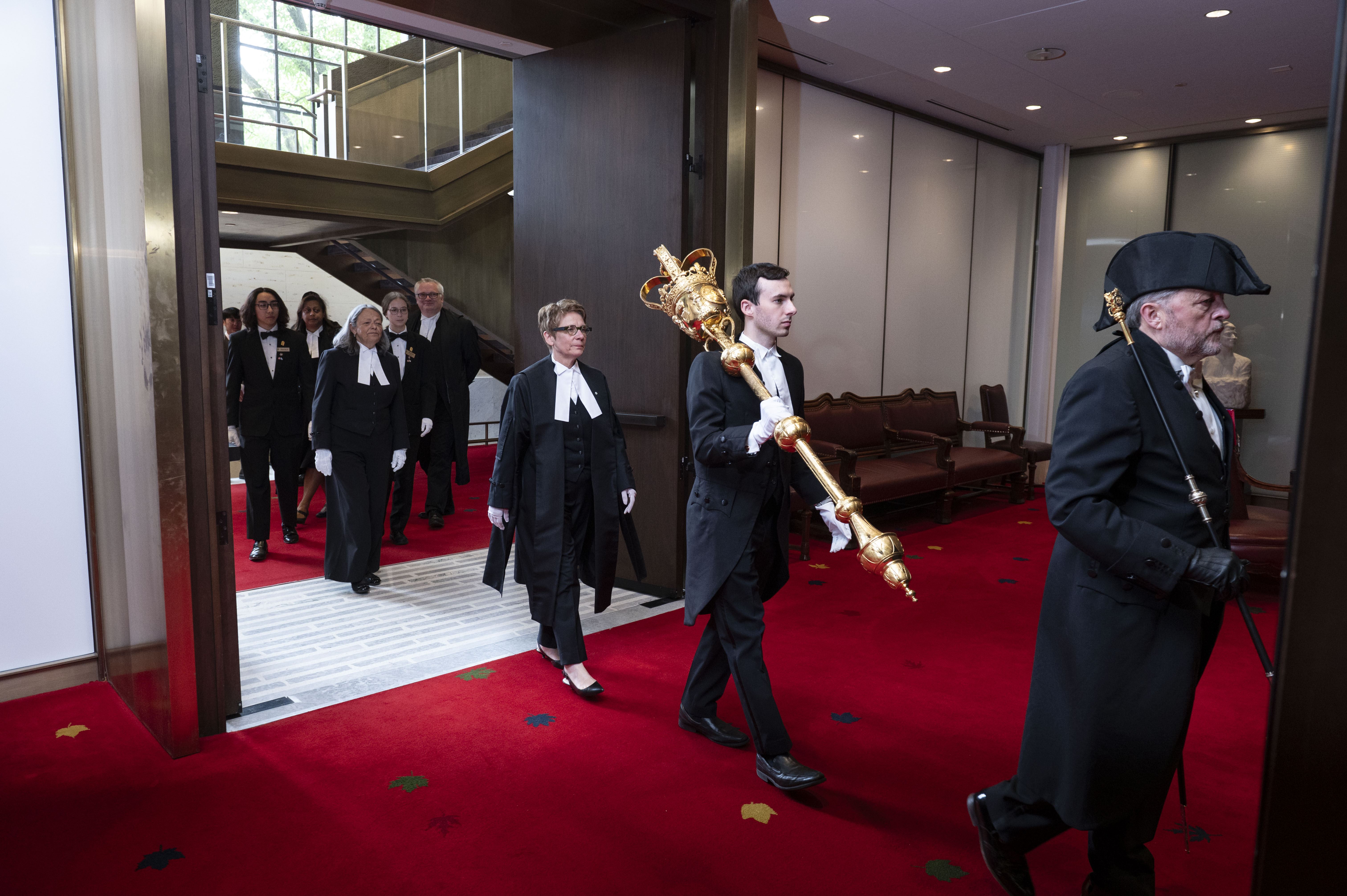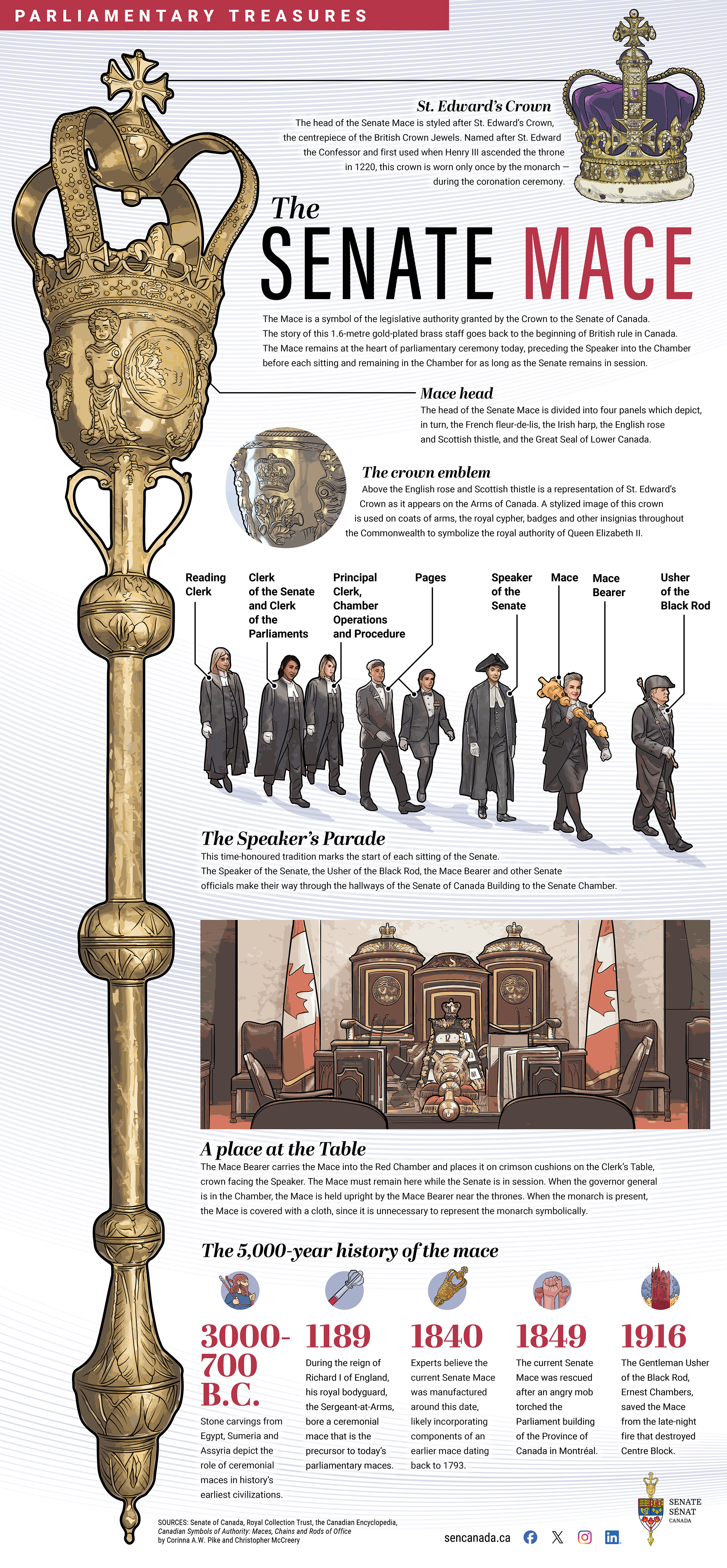Speaker’s Parade: The formal start to Senate sittings


The Speaker’s Parade is the time-honoured parliamentary tradition that marks the start of each sitting of the Senate.
It is the solemn procession of the Speaker of the Senate, the Usher of the Black Rod, the Mace Bearer and other Senate officials through the hallways of the Senate of Canada Building. The origins of this tradition are murky; some historians point to similarities to British religious processions while others suggest it is derived from a military escort.
For at least 15 minutes before the start of each sitting, bells toll in the Senate of Canada Building— a signal to senators that their presence is required inside the Senate Chamber. When the parade begins, officials in black robes and Parliamentary Protective Service officers in ceremonial uniforms escort the Speaker and the Mace into the Senate Chamber.
The Speaker’s Parade is led by the Usher of the Black Rod, who is the Queen’s private attendant and messenger at Parliament, and responsible for security in the Senate Chamber and its galleries.
The Usher of the Black Rod is followed by the Mace Bearer, who carries the ancient club-like weapon that represents the Crown’s authority and parliamentary privilege in the Senate Chamber.
Wearing a customary black robe, white-tabbed shirt and tricorn hat — a uniform that evolved from the traditional garb of the officers of English law courts — the Speaker of the Senate follows the Mace Bearer.
The Speaker is followed by Senate pages, the Clerk of the Senate — who is the head of the Senate Administration — and table officers, who assist the Speaker and other senators during the sitting.
The parade begins at the Speaker’s chambers and proceeds through Confederation Hall at the heart of Parliament’s Centre Block to the Red Chamber.
As a sign of respect, senators and observers stand while the parade passes and remain standing until the Speaker is seated in the designated chair at the head of the Chamber.
The arrival of the Mace and the Speaker must take place before the Senate can begin to conduct its business.
Once in the Chamber, the Speaker presides over the Senate’s proceedings, rules on procedural issues and maintains order and decorum. The Speaker acts impartially to protect the rights and privileges of all 105 senators during debate.
Read more about the Speaker of the Senate.



